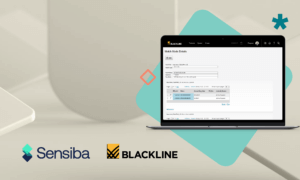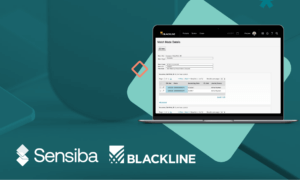As BlackLine administrators and finance leaders prepare to roll their instance into 2024, the end of the calendar or fiscal year requires some important steps and provides a great opportunity to review, update, and optimize your system settings.
Perhaps the first and most important item on your year-end to-do list is adding monthly, quarterly, and annual period end-dates for the coming calendar year. Be sure to indicate which periods are quarter-ends or the fiscal year-end.
If you skip this step, system imports will fail and users won’t be able to choose the proper period to complete their assignments. As you prepare these dates, it’s a good practice to only add period end-dates for one year at a time so users don’t have to scroll through lengthy menus to find the current-year periods.
Assign Due Dates
As a related step, it’s vital to assign due dates for the routine tasks within each period. This will usually include reconciliations, variance, and BlackLine’s consolidation integrity manager (CIM). If the due dates are left blank, users won’t see when their assignments are due and may not complete them on time. This failure can also delay the close process.
Forgetting to include due dates will also impact any alerts or notifications you’ve turned on and will prevent you from running reports based on late or past-due statuses for reconciliations, variance, or CIM because there isn’t a due date for BlackLine to use in its calculations.
Close Prior Periods
It’s also important to make sure all prior periods have been closed for importing balances. Ideally, this should take place monthly. Failing to close periods can allow transactions with incorrect dates to be imported into a prior period. This, in turn, will overwrite balances for your reconciliations and trigger corrections that will require documentation and could lead to questions from your external auditors.
Check Custom Frequencies
If your BlackLine instance includes custom frequencies, such as a frequency other than monthly for a given module, you’ll need to assign the correct period end-dates to the corresponding frequencies. For example, the 12/31 period will commonly be assigned to monthly, quarterly, and annual frequencies, and will likely have assigned tasks, variances, or reconciliations for each of those periods.
Review Your Matching Module
Year-end is a great time to review your matching module settings to identify any unloaded transactions that need administrative action, or unmatched transactions and posting dates outside of your organization’s tolerance. It’s also a good time to review your matching rules to ensure they’re performing properly.
For instance, a rule that has not captured any transactions may need to be adjusted, or perhaps it can be eliminated. Having outdated or unnecessary rules in the system can increase the job time of the matching engine, so it’s helpful to review your settings and rules periodically.
Other Items to Review
It’s a best practice to review the following settings as you prepare for a new year:
Administrative Tasks
List any steps and documentation associated with administrative tasks. It’s easy to overlook tasks that are only done once per year. Providing screenshots and other completion documentation can help you answer any audit-related questions.
First Transaction Imports
Monitor your first transaction imports. Be sure the dates on the files are rolling over successfully into the new year.
User Roles and Access Rights
People and roles change over the course of the year and you want to be sure everyone has the appropriate access (and that you’re not paying for licenses that aren’t being used).
Account Settings
Review the account settings for reconciliations due to groupings or account rules. Be sure the new year’s due dates are aligned with management expectations.
Organization’s Holiday Calendar
Upload your organization’s holiday calendar into BlackLine to ensure due dates are calculated correctly. If January 1 is an organizational holiday, for instance, you don’t want users to start the first business day of the new year with notifications that tasks are overdue. If you have questions about closing out your fiscal year or optimizing your BlackLine implementation, contact us.
We can help you streamline your transition into the new year and avoid common mistakes that can lead to issues later. Beyond questions, our no-cost BlackLineBoost assessment will review your settings and help you harness BlackLine’s powerful tools more effectively

















